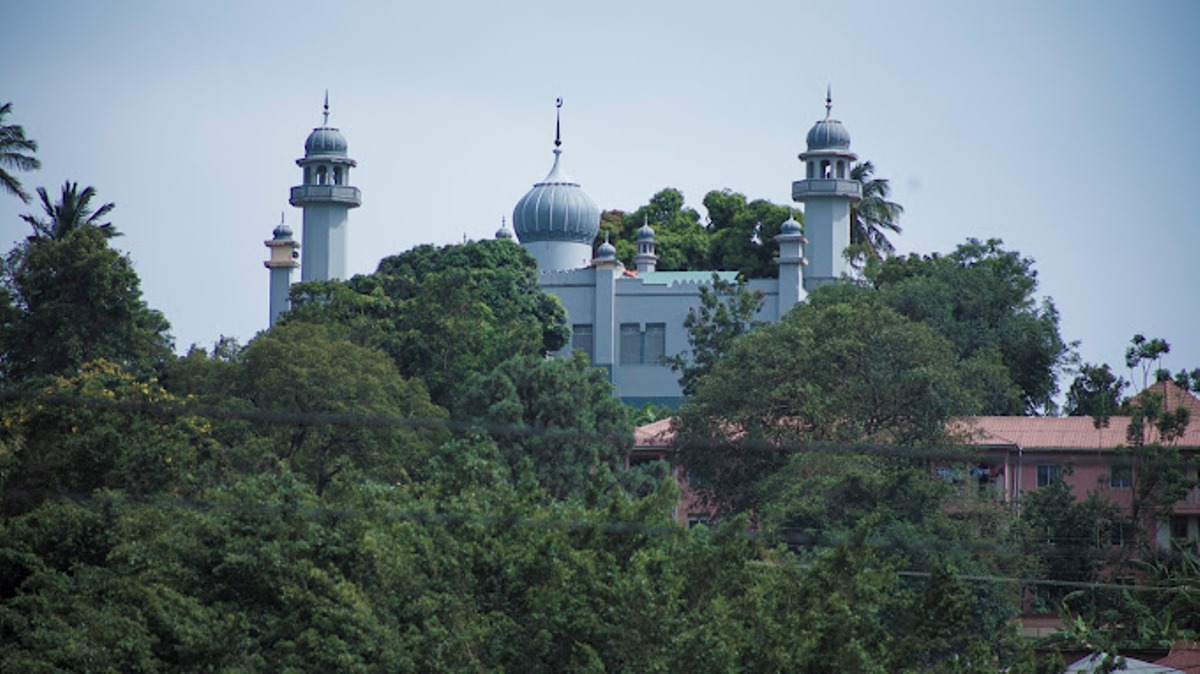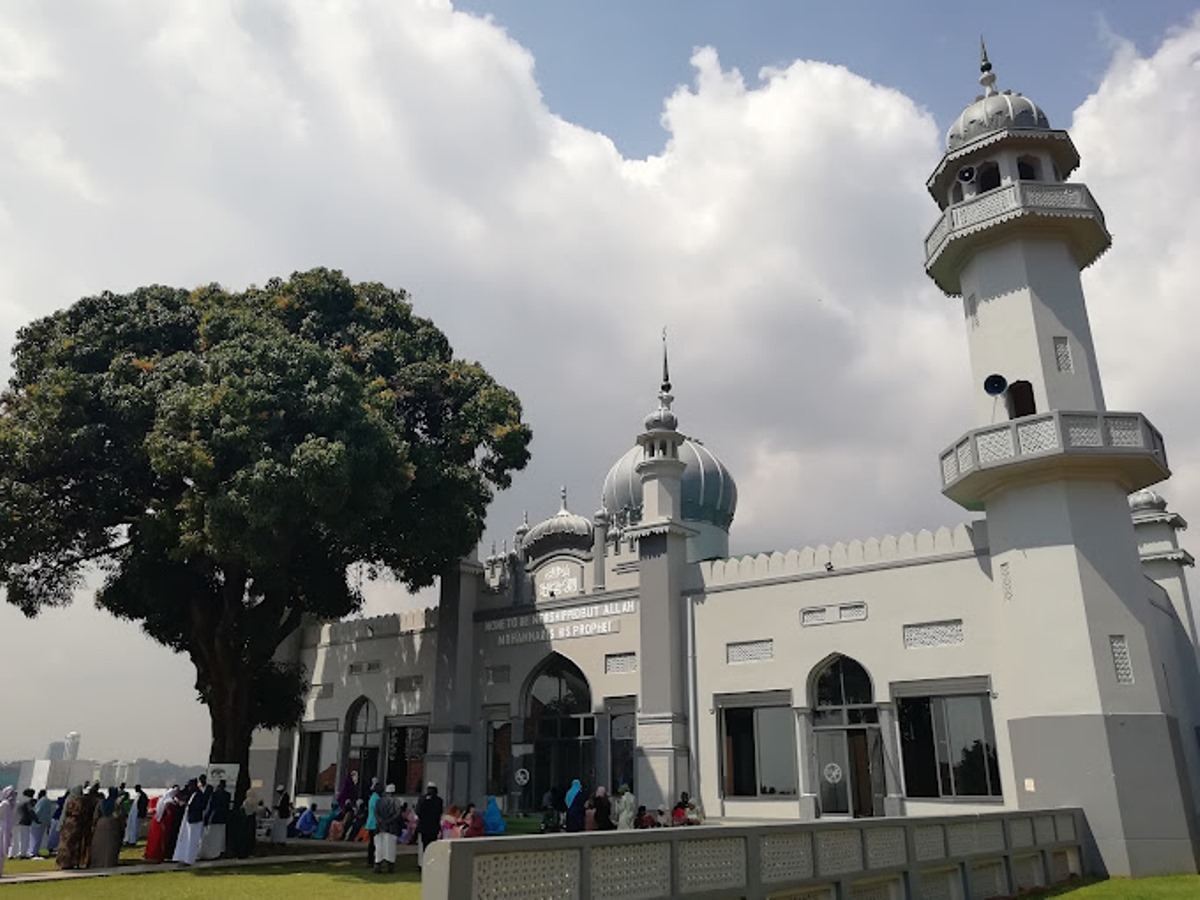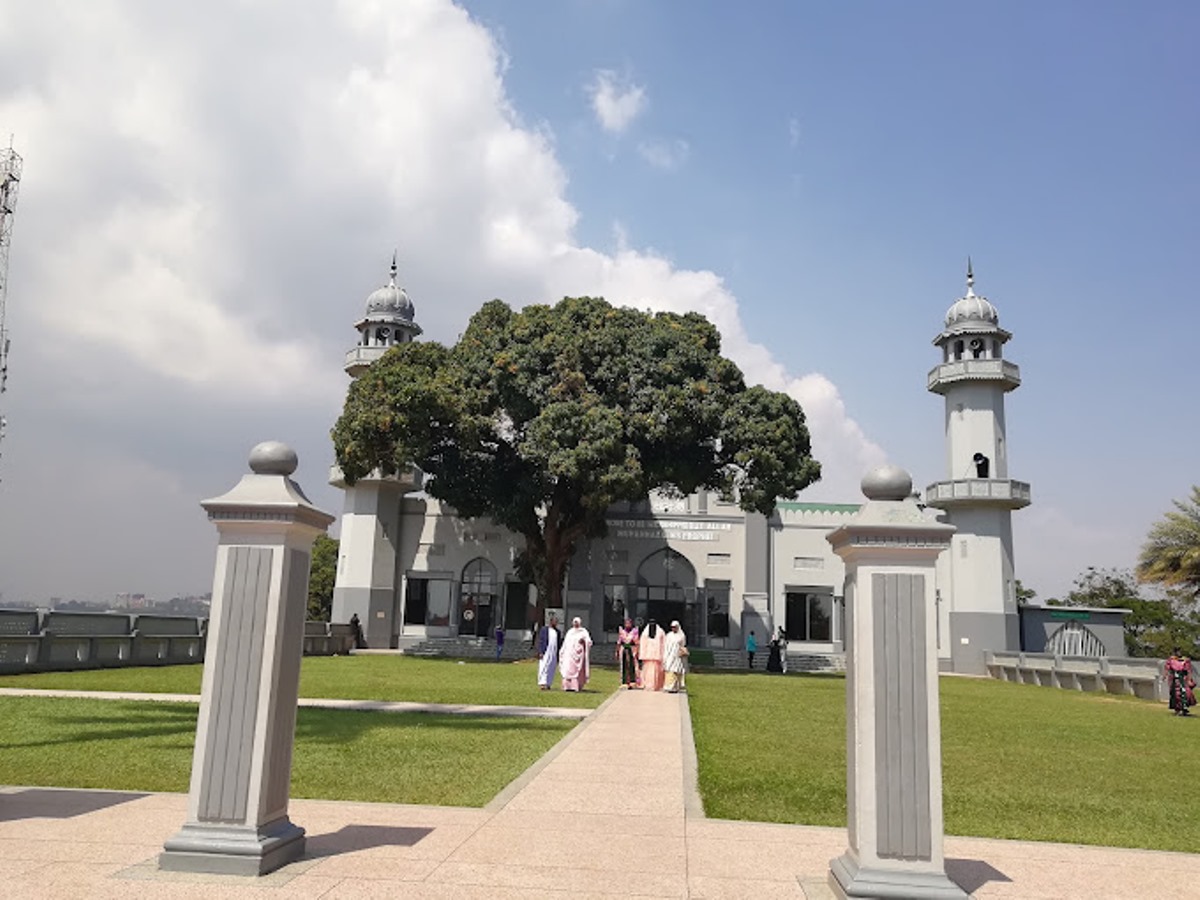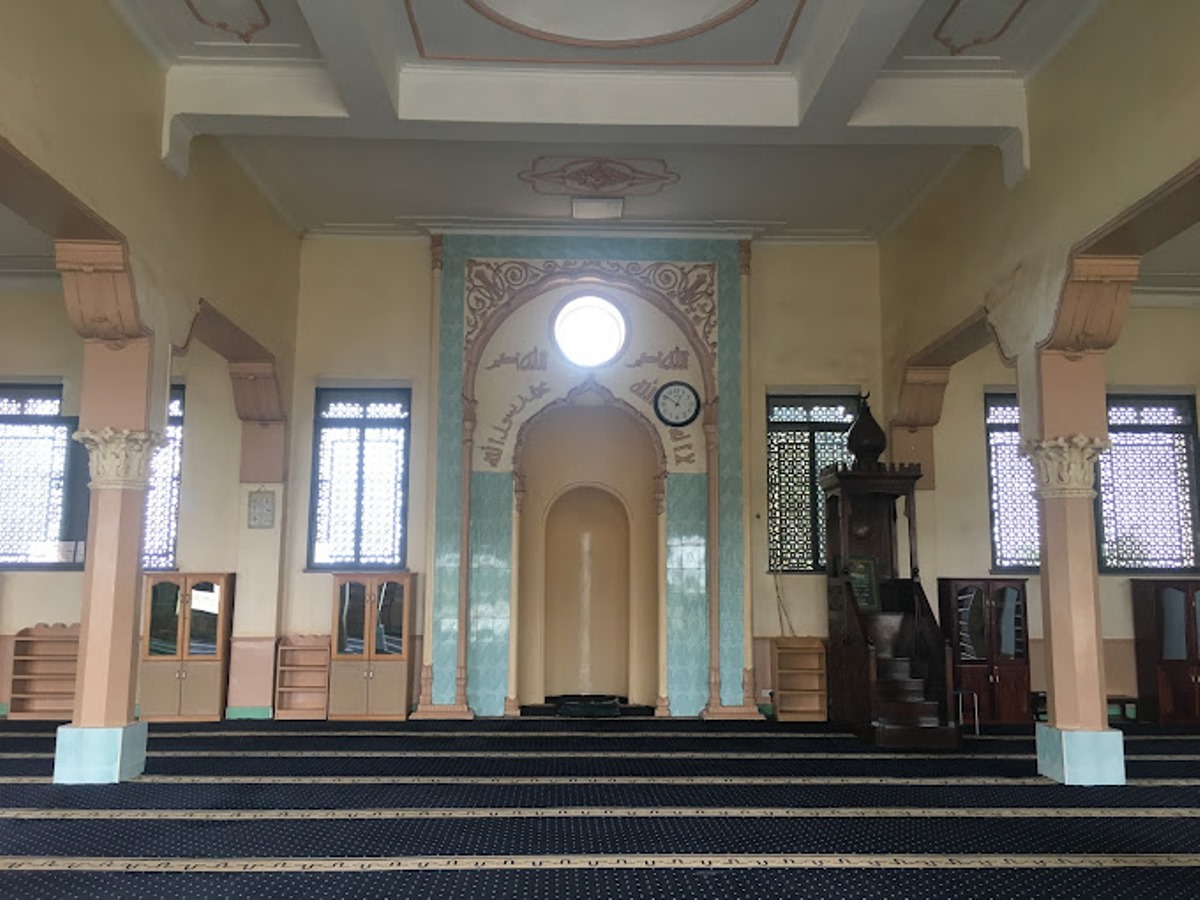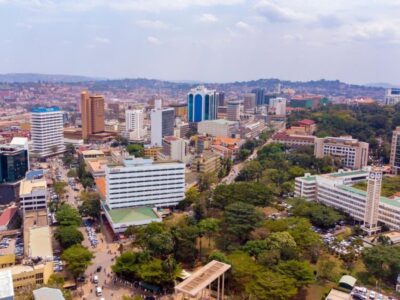Kibuli Mosque, Kampala – Uganda
KIBULI MOSQUE TRAVEL GUIDE, KAMPALA
LOCATION OF KIBULI MOSQUE, KAMPALA
The Kibuli Mosque is located on Kibuli Hill in the Makindye Division of Kampala, Uganda. This historic mosque is a significant religious and cultural landmark for the local Muslim community.
HISTORY OF THE AGA KHAN MOSQUE, KAMPALA
The Kibuli Mosque, located on Kibuli Hill in Kampala, Uganda, is one of the most significant Islamic landmarks in the country.
EARLY ORIGINS OF KIBULI MOSQUE, KAMPALA
The history of the Kibuli Mosque dates back to the late 19th century. The land on which the mosque stands was donated by Prince Nuhu Mbogo, a prominent Buganda royal who had received it from the British colonialists in recognition of his collaboration. Initially intended for his palace, Prince Mbogo decided that the hilltop location was more suitable for a house of worship. He built the first mosque on Kibuli Hill in 1892.
CONSTRUCTION AND DEVELOPMENT OF KIBULI MOSQUE, KAMPALA
The construction of the current Kibuli Mosque began in the late 1920s under the leadership of Prince Badru Kakungulu, the son of Prince Nuhu Mbogo. The mosque was officially opened for worship in 1951. The construction was funded by contributions from the local Muslim community, including significant support from the Aga Khan and other notable figures such as Musa Kasule and Badru Kakungulu himself.
ARCHITECTURAL FEATURES OF KIBULI MOSQUE, KAMPALA
The Kibuli Mosque features a blend of traditional Islamic and local architectural designs. It includes:
Prayer Halls:
- Spacious areas for daily prayers and Friday congregational prayers (Jumu'ah).
Administrative Offices:
- Facilities for managing the mosque's activities and community services.
Classrooms:
- Spaces for Quranic studies and educational programs.
Community Spaces:
- Areas for community gatherings and social events.
The mosque's serene ambiance and intricate calligraphy provide a peaceful environment for worshippers. The mosque is also surrounded by palm trees, adding to its tranquil setting.
ROLE AND ACTIVITIES OF KIBULI MOSQUE, KAMPALA
The Kibuli Mosque serves as a central place of worship and a hub for Islamic activities in Kampala. It facilitates daily prayers, Friday congregational prayers, and various educational programs for all age groups. The mosque complex is also home to several important institutions, including:
- Kibuli Secondary School
- Kibuli Primary Teachers College
- Kakungulu Memorial School
- Kibuli Demonstration School
- Islamic University in Uganda
- Kibuli Muslim Hospital
These institutions play a crucial role in promoting Islamic teachings, fostering unity among Muslims, and engaging in social and humanitarian activities. The mosque also hosts religious festivals, lectures, and events aimed at promoting Islamic values, education, and community development. Additionally, it encourages interfaith dialogue, contributing to peaceful coexistence among different religious communities in Uganda.
SIGNIFICANCE OF KIBULI MOSQUE, KAMPALA
The Kibuli Mosque represents the Islamic heritage and the presence of the Muslim community in Uganda. Its historical and architectural value, as well as its community-oriented activities, have made it a notable cultural asset in Kampala. The mosque continues to be a focal point for the Muslim community, providing spiritual guidance and support to its members.
The Kibuli Mosque stands as a testament to the enduring faith and cultural heritage of the Muslim community in Uganda. Its rich history, architectural beauty, and vibrant community activities make it a significant landmark in Kampala.

